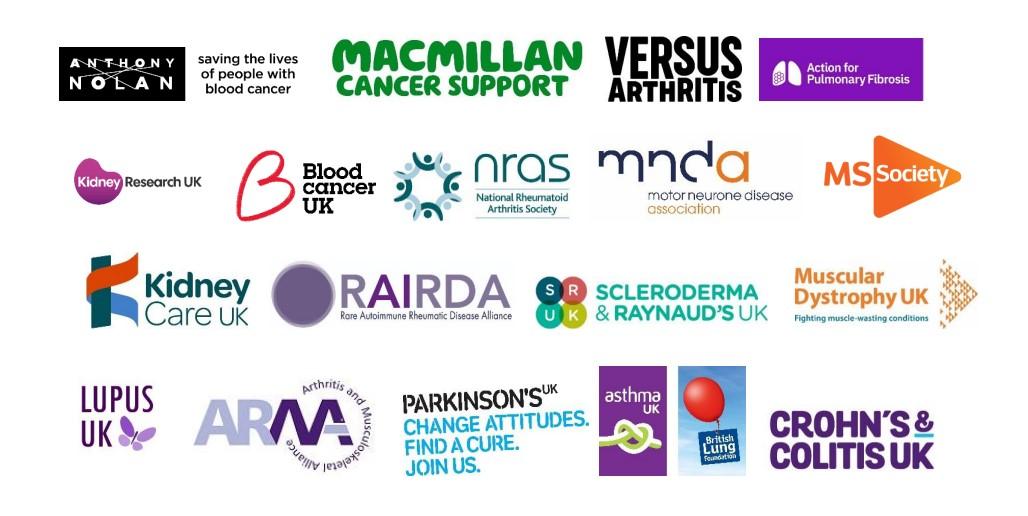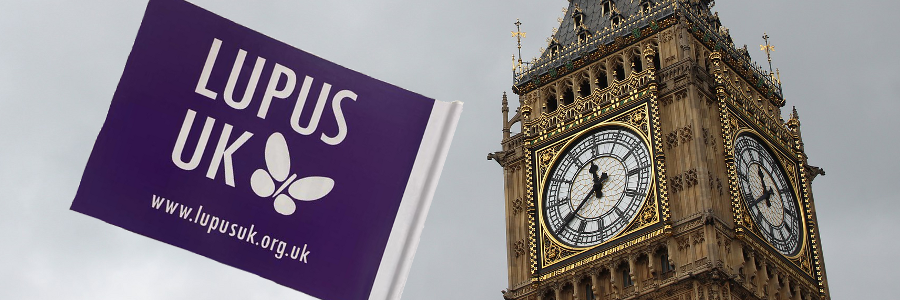
Our 5 tests for the Government’s plan for living with COVID-19
 February 17th, 2022
February 17th, 2022 Nakita Cambow
Nakita Cambow Latest News
Latest News 0 Comments
0 Comments
On 21 February, the Prime Minister is expected to outline a ‘plan for living with COVID-19’. It is unclear whether the plan will be for the UK or just England.
What is the government’s plan for living with COVID-19?
The government’s plan will set out how the country will manage COVID-19 in the long term, covering all aspects of the pandemic and its effects on our lives. We expect it will include the end of various measures that have been used to control the spread of COVID-19 so far. It’s rumoured that will include the end of free testing for most people, payments to support people on low incomes to self-isolate and the tracing system. The government have already announced possible plans to end mandatory self-isolation for people who test positive in England from next week.
What could it mean for people living with lupus?
Until the plan is announced we don’t know exactly what it will mean. We have heard from some people who are worried about what the removal of remaining COVID-19 infection control measures means for their risk now.
Most people with lupus are now well protected from COVID-19 by the vaccines. However, we know that some lupus treatments (rituximab, high-dose steroids and immunosuppressants) can make it less likely the vaccine will be as effective for you. Some people with lupus are at greater risk of severe illness if they catch COVID-19 because they have other risk factors.
Read our information about lupus and risk from COVID-19
We hope this will help you make decisions about what situations you’re comfortable with.
We are speaking up for people at higher risk from COVID-19
We’re concerned that the government is not fully considering the needs and concerns of people that remain at higher-risk from COVID-19. We want people who are less protected by the vaccines and at risk of severe illness if they catch COVID-19 to be able to live normal lives just like everyone else.
That’s why, along with 17 other charities, we have developed ‘5 key tests’ the government’s plan must pass to make sure people at highest risk from COVID-19 are well supported to live with COVID-19 now and into the future. We’ve sent our tests to Government Ministers and MPs.
Everybody wants to get back to normal, not least people at higher risk from COVID-19 who are among those most acutely affected by the pandemic. However, for that to be possible, government policy must prioritise supporting them to manage their risk.
Our 5 tests for the plan
The charity coalition has developed these 5 key tests that the government plan must pass in order to ensure people at highest risk from COVID-19 are well supported to live with COVID-19 now and into the future.
The 5 tests for the plan are:
1. Directly address the concerns of people at highest risk and commit to improve communication with them.
We need both a statement from the Secretary of State for Health and a press conference with the Prime Minister, and scientists, directly addressing the concerns of our communities as we enter this new phase with no ‘restrictions’.
Too often those at highest-risk have received poor, confusing or no communication from the government about changes that have a huge impact on their lives. They need information about the clinical basis for decisions to end existing COVID-19 measures and what it means for their risk, communicated in terms people understand (such as providing comparison to other risks they take) if they are to have confidence in ‘living with COVID-19’. Information about the services and support available to help them rebuild confidence (for example, from the voluntary sector) also needs to be communicated. The wider public also need to know exactly what steps they can take to support people at increased risk within the community.
People who were formerly classed as ‘clinically vulnerable’ or ‘clinically extremely vulnerable’ should also be addressed, as well as the immunocompromised/immunosuppressed. We know many still have residual anxieties. None of us would want someone to be taking more precautions than are necessary, to the detriment of their wellbeing, simply because they have not received information and reassurance about their risk.
Finally, the Government must commit to directly communicating with people at high risk regarding future policy change on COVID-19 measures, vaccine programmes, and treatments.
Any guidance designed for them must be available in a full range of different languages and easy read versions, and not be solely reliant on internet access.
Targeting such guidance at the right people in a timely manner requires improvements in the upkeep and sharing of patient data across the NHS. There have been issues throughout the pandemic with poor or incomplete data, resulting in some people being incorrectly told to shield, while others were not but should have been, and it taking too long to identify and invite immunocompromised/immunosuppressed people for vaccination.
2. Smooth, timely access to COVID-19 treatments
Treatments that help people avoid serious illness and hospitalisation if they contract COVID-19 are vital tools to protect people at highest risk. However, many people have told us they have struggled with timely access to the drugs since they were introduced, resulting in too many missing out on treatments designed to help keep them out of hospital. The government must continue to prioritise addressing any barriers to access, so that everyone eligible can access treatment quickly and easily. Specifically, ensuring the right cohort of patients are communicated with, and specialist secondary care teams, GPs, 111 and 119 are all equipped to provide timely information to patients and refer them for treatment. In addition, ensuring the eligibility list reflects the latest clinical evidence over time is very important.
3. Lateral flow tests remain free
Lateral flow tests are vital to making our communities feel safer and able to live more normally. Accessible testing means people at higher risk can establish whether or not someone they want to spend time with has COVID-19 and make decisions about risk accordingly.
Charging for tests would likely increase the risk of people who are severely immunocompromised catching COVID-19, and therefore force them to consider isolating themselves from contact with others, at the expense of their wider health and wellbeing.
4. Improve employment protection and support
People in our communities who are severely immunocompromised/immunosuppressed and in employment have told us about struggling with balancing risks to their health and their livelihoods.
People whose clinicians advise them not to go into their workplace because of their risks from COVID-19 should have the right to work from home. Where neither working from home or other reasonable adjustment to manage risk are possible, people must have access to adequate financial support while they are off work, for example by making a higher rate of statutory sick pay (ideally aligned to the European Average Wage) available in such circumstances.
The government should continue to provide up-to-date resources for employers to ensure their workplace is safe for employees, are aware of their legal requirement to provide reasonable adjustments, and of available sources of statutory support. The government should also demonstrate how they will enforce safety standards without only relying on employees bringing complaints. Alongside this, a much more ambitious public awareness campaign is needed from the government to ensure people at highest risk from COVID-19 are aware of their legal rights at work, how to raise concerns when an employer does not meet their legal duties and where they can get support to challenge them.
5. Set out a plan for the use of preventative COVID-19 treatments and prioritise more research into treatments and vaccines
The government must set out evidence-based plans for the use of prophylactic (preventative) treatments for people that are severely immunocompromised, to reduce their risk of catching COVID-19 and give them increased confidence to live normal lives. Further research is also needed into the efficacy of both COVID-19 treatments and vaccines (fourth doses and boosters) in a variety of immunocompromised groups, so that people can have informed conversations with their clinicians about risk and managing it.
Experiences of people affected
 Dalila lives with lupus which is treated with immunosuppressant medication:
Dalila lives with lupus which is treated with immunosuppressant medication:
“Whilst for many this seems to be the final step towards returning to the normality known before the pandemic, for us immunosuppressed and vulnerable people it means losing some of the most important precautionary measures that, together with vaccines, have given us the opportunity to progressively integrate with our communities again and reduce the risk of catching a virus which is still very prevalent. Immunosuppression is an essential part of the treatment that keeps me alive, and during these last two years I’ve been learning how to continue treatment and manage my condition under the threat of this new virus. Initially this included shielding, as advised by the medical authorities, and to make the difficult decision to avoid close contact with my family and miss precious moments together. Measures such as face masks, ventilation and isolating those infected have helped me to be and feel safer.
“I would love to enjoy time with family, friends and be actively involved in the community. For me to feel safe doing this, the risk of contracting COVID-19 needs to be more manageable and treatments fully available.”
A word from our CEO
 Paul Howard, Chief Executive Officer of LUPUS UK, says:
Paul Howard, Chief Executive Officer of LUPUS UK, says:
“As part of this coalition of charities supporting people who remain most at risk from COVID-19, we’re urging the government to listen to the experiences of our communities. The government must address their concerns as we transition to a new phase of the pandemic. The time for blanket restrictions has passed and we are not calling for them to be reinstated. However, there is a way for us to move forward whilst continuing to protect and support the 500,000 immunocompromised & immunosuppressed people, including some with lupus, allowing them to manage their risk and have a better quality of life.
“The government’s plan must address the needs of these people by maintaining free testing, strengthening employment protections for people at risk, ensuring quick access to COVID-19 treatments for those infected and developing a method for using preventative prophylactic treatments. We all need to be able to live with COVID-19 and the government must not leave the most vulnerable behind.”




 ©2024 LUPUS UK (Registered charity no. 1200671)
©2024 LUPUS UK (Registered charity no. 1200671)